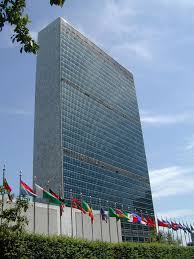In attempt to make selecting the new Secretary-General a more transparent process, candidates were given opportunities for informal dialogues and meetings with the members of their perspective bodies starting in summer 2016 until early October 2016. To ensure equal opportunities for representatives of both genders to senior decision-making positions, Member States were encouraged to consider both men and women as candidates. Was the selection process as transparent as it was expected to be? What does the selection of yet another male Secretary General say about the role of women at the UN? Seton Hall University School of Diplomacy and International Relations faculty share their views on the subject of transparency and gender during this selection process.
I think the answers to your questions are intertwined. For example, I believe that some of the candidates, because of the public visibility inherent in the more open process, hurt their own chances in ways that they would not have done had the process been more closed. It is thus possible that the very openness of the process contributed to the result that, despite the desires and expectations of many, neither a female nor an Eastern European candidate was selected. Regarding either the present process or a future process toward which one might aspire, is hard to judge whether or not there is an ideal degree of openness, for the selection outcome is essentially a negotiated outcome, and it is possible to argue that both more open and less open processes have their advantages and disadvantages. For example, those who value transparency and accountability often argue in favor of more open processes. However, more closed processes might enable more creative, or even daring, negotiations to be conducted than would be the case under the harsh light of public scrutiny and world opinion, and greater creativity might foster better outcomes. Regardless, all people of good will would agree that whatever process is used ought to facilitate selection of the best candidate for the role. Reasonable people could disagree on the balance of openness and confidentiality needed to achieve that goal. In another context, seasoned Vatican negotiator Antonio Cardinal Samorè attributed success to “a bottle of wisdom, a barrel of prudence, and an ocean of patience.” This insight applies equally to how a process is designed and how a process is executed.
On the appointment of Antonio Guterres as a new SG
This was a bit of a surprise. Guterres was the leading candidate in the straw polls, but this vote marked the first time that the Security Council used color-coded ballots to separate the choices of the permanent veto-holding members. Many were expecting a Russian veto since Guterres is not from Eastern Europe, and he is not one of Russia’s preferred candidates. Russia is holding the Presidency of the SC right now, so for them to delay proceedings a bit would not have been out of the ordinary.
On the gender question:
Many in civil society are not happy about this selection, since there was a great deal of pressure to approve one of the female candidates. All of the previous Secretaries General have been men. But the failings of these candidates were political ones rather than being just about gender.
That Russia did sign off on Guterres raises questions about whether there was a deal reached that bought off Moscow. We do not yet know this, but their support for Guterres could have been obtained in exchange for one of their candidates being named Deputy or heading a department. Alternatively, one of the other candidates for SecGen might yet be named to a post.
On transparency:
This process is a quiet victory for transparency. In contrast to past years, this process has involved public consultations with candidates being interviewed by states as well as civil society representatives. It could well be that because Guterres was an early frontrunner because of his performance in these informal dialogues, coupled with his lead across multiple straw polls, made it difficult for the Russians to veto him.
It should be noted in all of this that this is a great day for the UN. Not only do we get a Secretary General approved quickly, but the Paris Agreement on Climate reached enough signatory parties to enter into force. The UN remains a powerful force for bringing countries together to help solve the world’s most vexing problems.
-Vera Dimoplon
